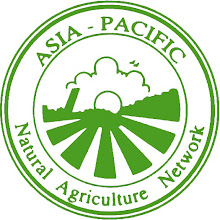
BOKASHI NEW ZEALAND
The company Bokashi NZ was established in 2003 in Timaru, South Canterbury for making and selling Bokashi and also household and industrial organic waste management bins.
The activities of Bokashi NZ have developed over time and today the company is promoting this technology using EM all over New Zealand. They have sold over 15,000 units for household kitchen waste management upto the present time and the demand is increasing. In Christchurch and Warrington, many communal facilities and restaurants are using these bins to recycle their organic wastes. However the biggest success has been in Waihaki Island, off the coast of Auckland, where over 20% of the local inhabitants are using the kitchen waste management bins, especially after APNAN held workshops in 2008.
The Bokashi used for waste management uses high quality ingredients containing carbon (saw dust and wheat bran) which is fermented with EM and dried to form the final product used in the bins. The Managing Director of Bokashi NZ, Neville Burt stated that this Bokashi is really good for kitchen waste management, which contains high quantities of nitrogen due to the presence of meat and milk product residues. Today the Bokashi program is being expanded to cover industrial uses in agriculture and animal husbandry.













